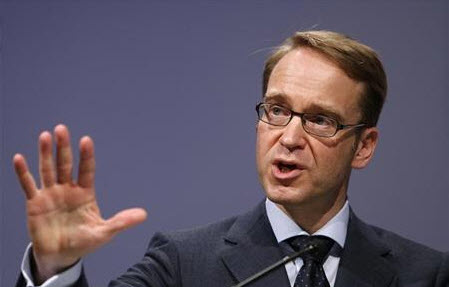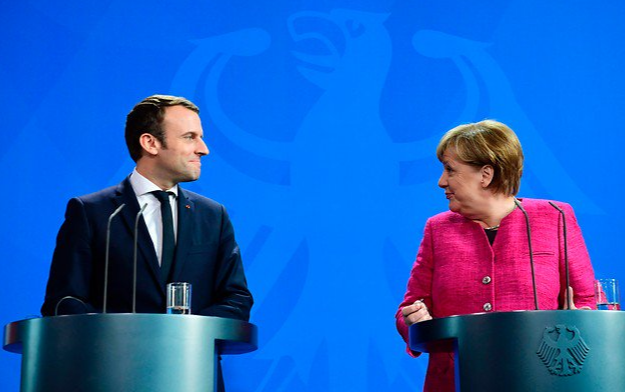Bundesbank chief Jens Weidmann is touted as the favourite to succeed Draghi as ECB president

Mario Draghi's term as president for the ECB will come to an end on 31 October 2019. It's still a long way to go until then, but the political race has already begun for his successor. Among which, the front runner at this point in time is Bundesbank's Jens Weidmann.
The unspoken rule for the ECB presidency is that it is Germany's turn to head the helm. Following Luis de Guindos' appointment as VP, it is all but a coronation procedure considering previous ECB presidents were from Netherlands, France, and Italy.
Weidmann has been a long-time dissenter - a vocal one for that matter - of QE and other policies currently run by the ECB, most notably he opposes the sort of loose fiscal discipline adopted by the central bank and he is a firm advocate of clamping down on the financial system in Europe (a reason why he's not a popular figure in Italy).
But would the ECB be very much different from what it is now if Weidmann is to be charge next year?
He has been pushing for a quicker end to bond-buying and the market view is that the ECB would switch to a more hawkish central bank under Weidmann, but there is still a lot of political play in the background that hasn't really been thought through.
The thing about Weidmann being the chief of the Bundesbank is that he has to be vocal in his views to court support from his local counterparts, but can he continue to do so as ECB president?

In recent times, we've already seen Weidmann tone down his approach to these matters - a political play nonetheless - but as president of the central bank he needs to cater for the entire Eurozone and not just one bank/country's specific strategy.
Sure, he can still voice out the same opinions but at the end of the day things in the ECB work under the simple majority rule. That would require Weidmann to convince at least 13 out of the 25 governing council members if he wants to push through with any major policy decision.
And that is something in which he has failed to do at ECB meetings so far. In essence, Germany will have two votes when he takes over - one from the president, and one from the Bundesbank - but still, it's a stretch to imagine that Weidmann will be able to pull off such a drastic change in thinking across the board overnight.
So even if Weidmann or any German for that matter takes over as the ECB president, it's not going to change things at the ECB immediately. Whoever takes over from Draghi will be constrained by the job itself so that they can't solely look after national interests, and that would mean a massive dial-back in tone from what we've seen over the past three years if it were to be Weidmann that fills Draghi's shoes.
And in terms of policies, yes there may be a bit of a hawkish tilt in voice and opinion, but to get things done is entirely a different story. Euro bulls will cheer any German appointment to succeed Draghi, but those expectations will be tempered when the ECB as a whole cannot match the hawkish views of one or two individuals.
I guess one factor that works in favour of Weidmann if he succeeds Draghi is that the current timeline sees the ECB moving to tighten monetary policy in mid-2019. If they haven't done so by then, and if economic conditions allow for it, then he could push the case for rate hikes and get his way with it. So, that is something to throw into the mix as well.

The interesting thing about the ECB presidency is that France is yet to chip in with their thoughts on this, but more likely Macron and Merkel are looking out for bigger fish to fry in the background since the European Commission presidency will also open up in spring 2019.



